Harrison Ford on reprising his 'Blade Runner' role, being satisfied with his 'Star Wars' death and what motivates him to fly planes
"I wanted him to reach his ultimate moral utility," Ford said of Han Solo.
— -- Harrison Ford has been pretty tight-lipped about his latest film “Blade Runner 2049.” Aside from what’s in the movie trailer, he won’t tell you much else.
“We know he’s a blade runner, and that’s a job,” Ford said of his co-star Ryan Gosling’s character. “I was a blade runner. I had his job once.”
Ford recently visited ABC News’ “Popcorn With Peter Travers” to reflect on his career and what it was like to reprise his leading role from the 1982 film 'Blade Runner',” over 35 years later.
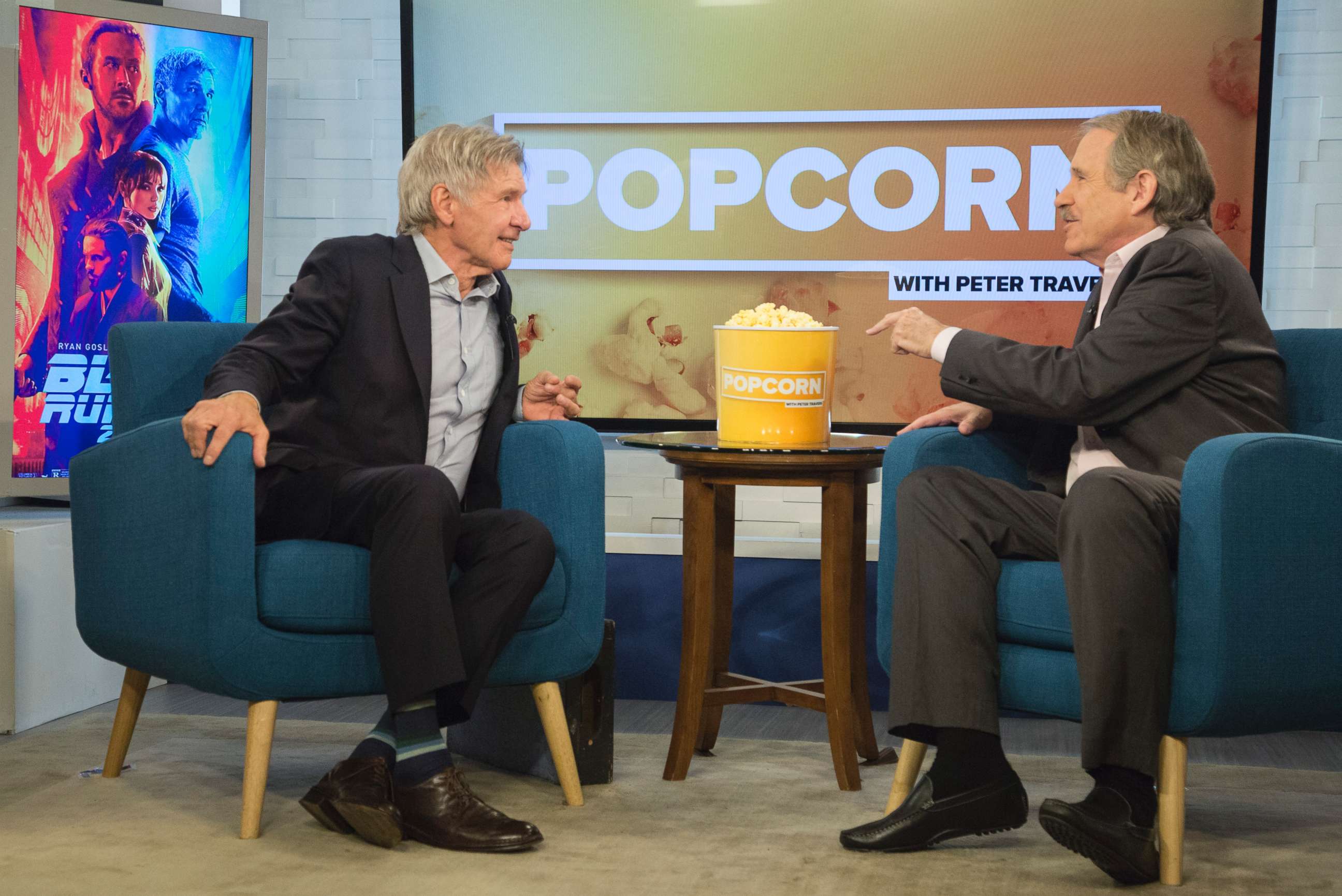
“Blade Runner 2049” brings back Ford’s Rick Deckard, a blade runner, who is tasked with tracking down replicants. Replicants are manufactured human beings that you can’t tell from the real thing, the movie explains. Gosling, who was 2 years old when the original film was released, also plays a blade runner known as K.
“Blade Runner,” Ford acknowledged, actually wasn’t an immediate hit with audiences and the film’s studio until director Ridley Scott was able to make additional changes to the picture.
One of the significant modifications made was removing the voice-over narration. Ford, who hated the original film’s voice-overs, admitted he was pleased about the change: “I guess it’s well known that I didn’t so much admire that.”
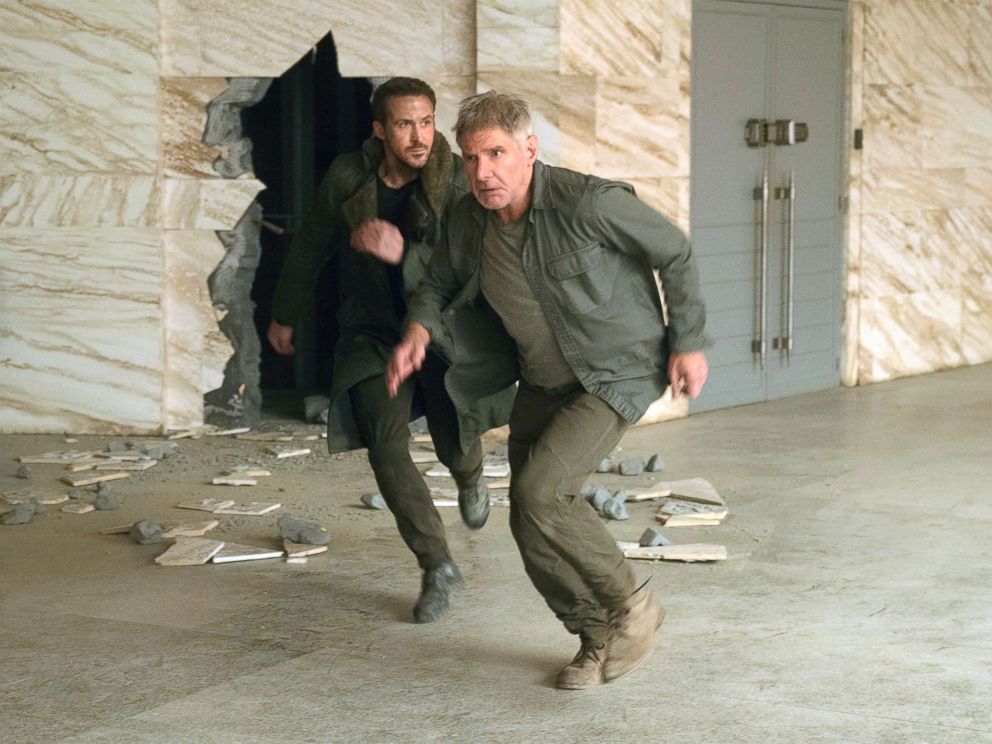
Ford also explained why he’s perfectly fine with the fate of his “Star Wars” character Han Solo and revealed his real motivation for taking up aviation.
“It keeps me from, you know, laying under a stone that says, ‘Actor.’ For me, I just want another bit of life,” said Ford.
Check out Ford and Travers’ conversation below, and watch the full video in the episode above.
To me what’s essential about “Blade Runner,” is that it’s about thinking, when you come home, what it is to be human. That’s the question. And none of us know. We’re spoon-fed everything.
“These are existential questions, which the movie really doesn’t stop to ponder. It just keeps coming, and life-like, and you figure it out a little bit later. But while you’re there, you’re so engaged by what’s happening. And the mix of character-story and the visual storytelling is, I think, one of the incredible things about this movie. Roger Deakins and Denis [Villeneuve] have renewed the license on a picture being worth 1,000 words. You find yourself in a visual context as an actor and as an audience that does a significant part of the work for you, and then you get to pick up and then build on top of that because you don’t have to explain it all.”
Was Ryan Gosling a major “Blade Runner” freak of the first one?
“He was 2 years old when it came out. He was 12 years old when he saw it. He rented it for four films for $4. He watched it on VHS at home -- I assume when he mother wasn’t looking -- and it stuck with him to a degree. I mean, he talks about how it made him feel. It didn’t tell him how to feel. He was expecting from a movie the usual effect [which] was they would be told how to feel. By the end of it, it had been wrapped neatly and a bow put on top, and that was that. But he said it was transformative in that it left him with more questions than answers, not in an unsatisfying way. But it stimulated thinking for him.”
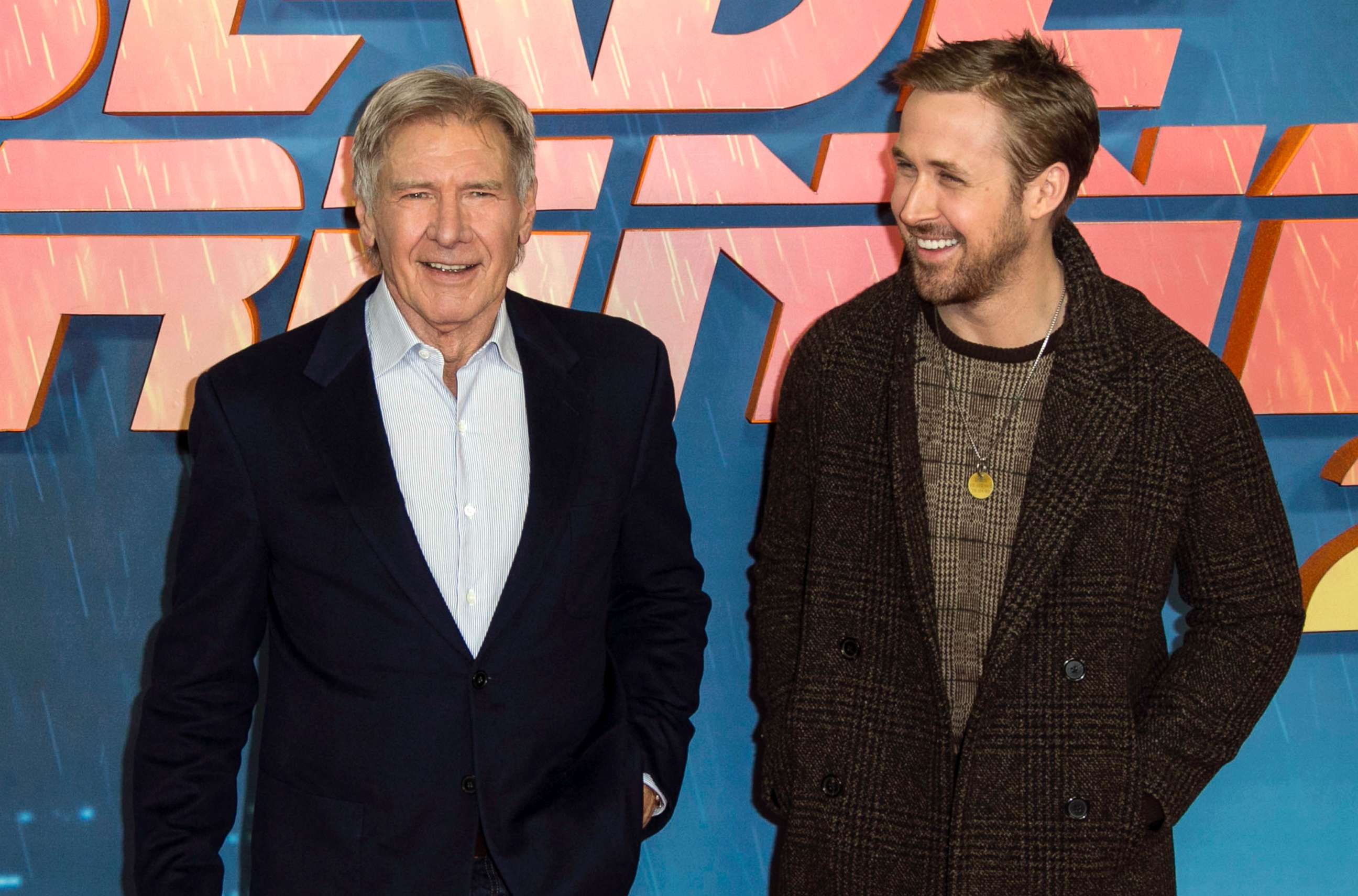
Without giving it away, so does “Blade Runner 2049.” It answers some questions, and it raises a hell of a lot more.
“I would think so. I will say that the questions will always be there. I mean we’re all looking for proof of our existence.”
This is only your second time playing Rick Deckard, but what was it like crawling back into his skin?
“There was a unique storytelling device I think that I really appreciated. The story brought you to him. I didn’t have to bring story on my own back, and so when you get there, and you see the guy 35 years older, in a different context. Then you’re on the starting line. You’re not walking into the stadium. You’re on the starting line, and you got there just in time and you’re off. It was great. And the story I have to tell flows effortlessly out of the groundwork we’ve laid before. And it’s unanticipated, and it’s complicated and it has an emotional context that is just was the bait on the hook for me. I wanted that significant, emotional relationship with a character, with the audience. That’s what I wanted out of it.”
Was it a different experience? Because you weren’t a happy camper while you were shooting the first one.
“I was happy enough camping.”
That’s not what Ridley [Scott] said, no. He said, “You never saw anyone -- more than Harrison. He didn’t like it. 'It’s always dark--'"
“No, listen, I understood, it’s always darkest before the dawn. I understood that a general has a job to do, and he’s got to keep the troops in line. I understood that Ridley didn’t give a rat’s a-- whether anyone liked him, that’s fine. I realize that he was keeping me in the dark about certain ambitions, and he had control of the movie. And I thought, I felt OK about that. That didn’t bother me. I didn’t want to direct the movie. I just wanted straight answers. And then I wanted us to rest in a place where we could work from there. But I had a great time, I had a wonderful time, as good as a time you can have when you turn into a vampire when you’ve been up for 50 nights and everybody else has. And it’s raining all the time. I wasn’t complaining all the time. I wasn’t overworked. It was just, you know -- but this is, I think it was good for me. I think it was good for him.”
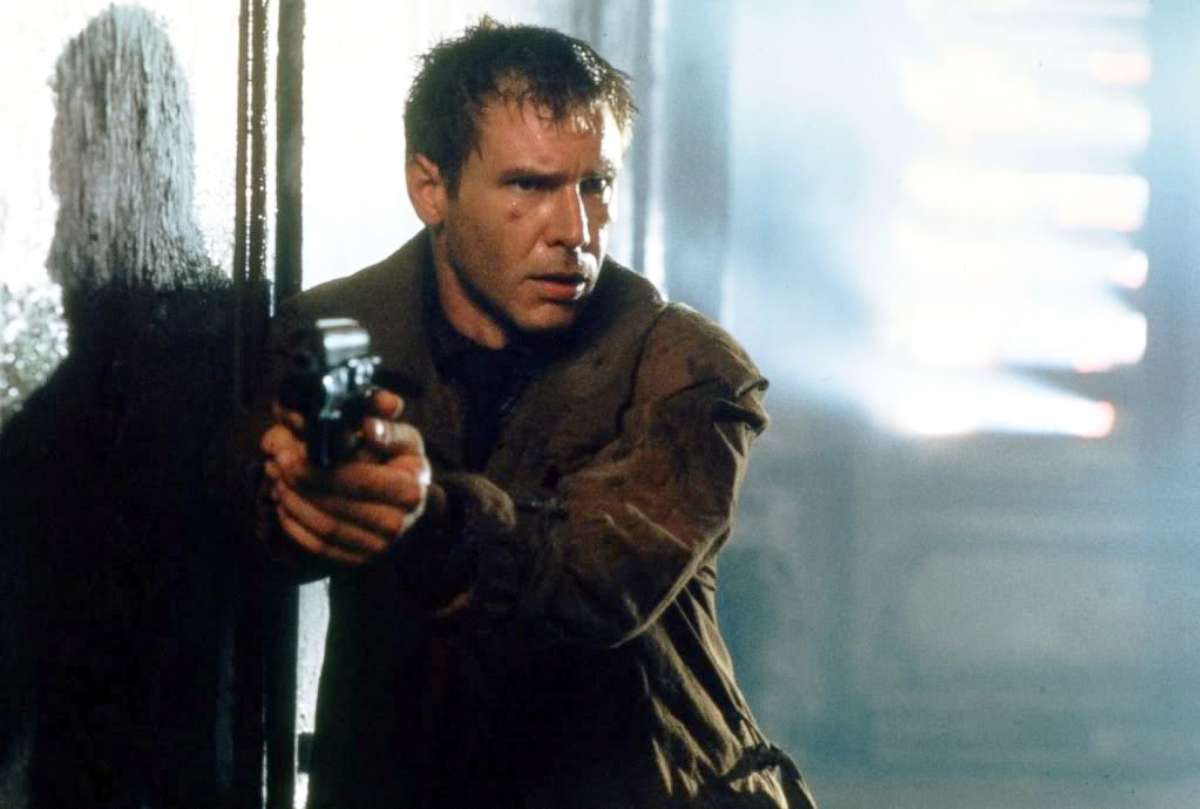
Look what happens in the second film. Ridley Scott is the executive producer, and Denis Villeneuve is the director.
“He gave Denis his blessing, told him not to screw it up. ‘Let it lay like Jesus flung it,’ as my people used to say. But it’s a brother from another mother. It’s pretty amazing how consistent it is with the intellectual matrix of the first one, how much that it attends to the visual storytelling of the first but is its own thing. Denis has made it his own movie, and we feel that, but, we, who made the movie-- the relationship with Denis was the best. He really is a remarkable person, and his control of the thing was fastidious.”
You’ve done this with Han Solo. You crawled back into the skin of that character, and look what they did to you in “Star Wars: The Force Awakens.” It looks like you don’t ever have to come back.
“Peter, as you remember, I’ve been arguing for a human sacrifice. I wanted him to reach his ultimate moral utility. I wanted him to sacrifice himself for the good of the others, because he’s got no mama, he’s got no papa. He just about half-believes in the force and the mythology that’s there. And then I thought, you know, bring on the younger horses, the fresher horses. So I got what I asked for. It took a good couple movies, but I’m OK with that.”
You have to know how people love the characters you helped create, and so with Carrie Fisher’s death, we’ve lost Princess Leia. We’ve lost Han Solo. This is wrenching to people who’ve lived with these characters.
“Well, thank god we still have a hale and hearty Mark Hamill carrying the torch.”
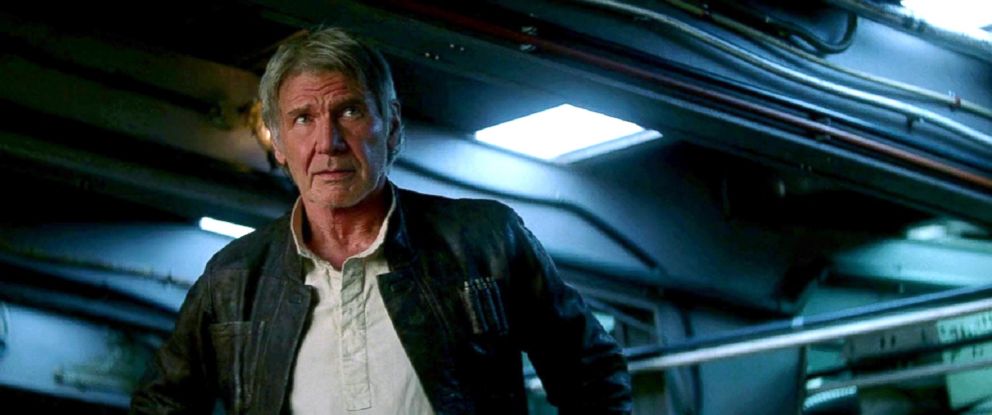
When you’re dealing with your family or your wife, do they say, “Harrison, here’s what we think of what you do?” Or do you get critiques from them?
“No.”
They’re just totally supportive?
“No, we don’t talk about it. Does a bus driver’s wife comment while he’s driving the bus?”
Aviation is just as much a part of your life as anything.
“It’s a way to get there, and it’s a discipline. And when I came to aviation, it’s because I hadn’t learned anything in a while, and I really wanted to see whether I could do that. I was really young. I was 52.”
So when you’ve had accidents with a plane, you weren’t discouraged by it?
“I didn’t have an accident. The engine quit at 600 feet in the air. That wasn’t my accident. The airplane had an accident. I love it. It’s a combination of freedom and responsibility. You put in the responsibility to know what you’re doing, and then you gain this freedom. But you’re constantly attending to the responsibility because you’re enjoying the freedom. And it continues to give back, because you continue to learn. No matter what you do, you can always find something to tweak in aviation. And it keeps me from, you know, laying under a stone that says, ‘Actor.’ For me, I just want another bit of life.”
Editor's note: This interview has been edited for length and clarity.
Watch the full interview with Harrison Ford on ABC News' "Popcorn With Peter Travers" above.
Download the "Popcorn With Peter Travers" podcasts on Apple Podcasts, Spotify, Tunein, Google Play Music and Stitcher.
Harrison Ford sings Sinatra's 'One for My Baby'




